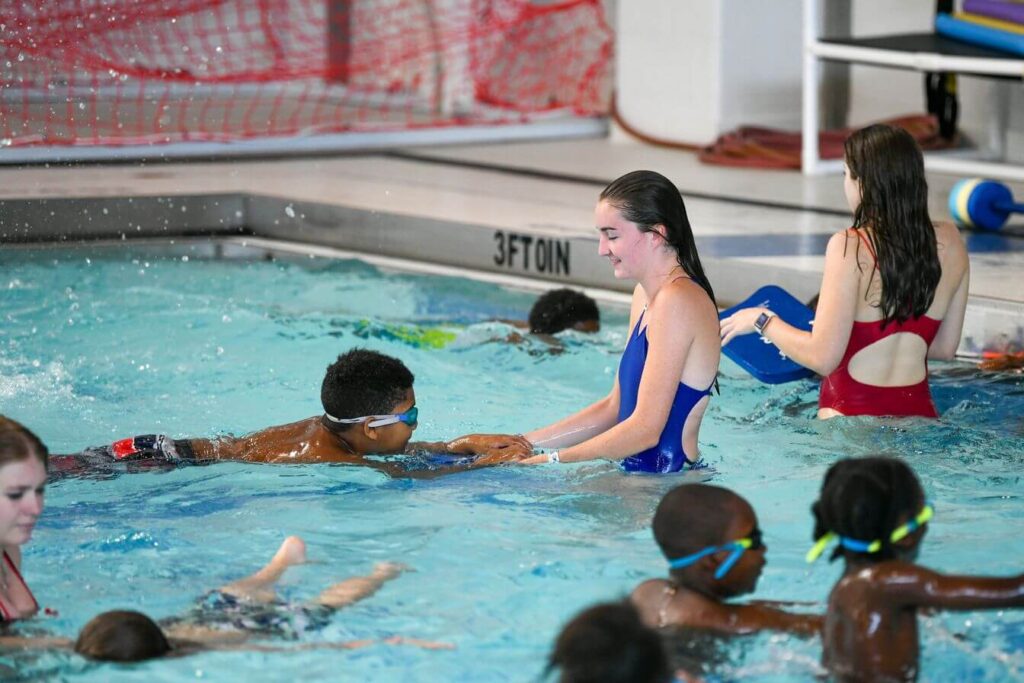Ava Roberts ’24
This past summer, Philadelphia faced one of the most drastic lifeguard shortages in its history. As a result, only 48 of the city’s 70 pools opened, and measures are being taken to ensure that the same issue does not occur this summer.
In June, the American Lifeguard Association asserted that the lifeguard shortage was happening on a nationwide scale, affecting about a third of the country’s public pools and resulting in the limited operation or closure of many facilities. The crisis threatens to shut down several beaches.
Michael Minicozzi ’23, who worked at the Jersey shore as a lifeguard over the summer, speaks to the extent of the shortage, claiming that it “is actually part of the reason why [he] decided to work down the shore.” He explains, “My grandmother lives down there, and she told me that they have been asking around everywhere for lifeguards.”
According to The Philadelphia Inquirer, the shortage is attributed to a combination of factors, such as the lingering effects of the pandemic, new summer jobs for college students, and a labor shortage. Additionally, almost one-in-five Americans cannot swim, meaning that many otherwise eligible individuals cannot fulfill the requirements to become a lifeguard, which include basic swimming skills, a three-hundred-yard nonstop swim, and the ability to lift a brick from the bottom of a pool.
The Philadelphia Inquirer also notes that lifeguard shortages most drastically affect underserved neighborhoods in Philadelphia, which face disproportionately high rates in gun violence and tend to be hotter due to low tree canopy and a legacy of redlining. Kirsten Regan ’23, who resides in Philly, states, “The lifeguard shortage exacerbated pre-existing issues in many underserved minority communities throughout the city. Due to pool closures many kids didn’t have access to safe spaces to cool down in the summer heat. This is especially critical because it makes the youth more vulnerable to summertime spikes in gun violence.”
EA’s Horizons program intends to address this problem. Executive Director Courtney Delaney explains that Horizons is “fully staffed for the summer already.” In fact, her aim is to combat the lifeguard shortage by training many high school aged students from underserved communities through Horizons. She elaborates, “Our hope is to train some of [the kids] this summer to be lifeguards, so they can go back and work in their communities.”

Photo courtesy of EA Communications
Philadelphia is also taking measures to combat the lifeguard shortage. The city has waived the usual $175 training fee to become certified. Free lifeguard training and certification is available in places like Lincoln High School in Northeast Philadelphia. Jack Cellucci ’24 shares, “I got my lifeguarding and AED certification a few weeks before my first job in 2021 at the Northwest Philly YMCA. It only took four days of commuting and instruction, which included not only passive in-class learning and note-taking, but also physical deck training with dummies. I learned with a group of four and an instructor. Also, there was an online ‘final exam’ that took an hour.”
Philadelphia has also recently increased the base wage as an incentive, raising it from $15.24 to $16 per hour, with some lifeguards making closer to or more than $18 per hour. Lifeguards work around 35 hours per week, so they often make over $500 each week.
According to The New York Post, such a desperate need of lifeguards has prompted many municipal pools to accept candidates who have limited swimming experience, with officials saying they will provide swimming lessons to novices. Commissioner of Philadelphia Parks and Recreation Kathryn Ott Lovell comments, “I wouldn’t say [the candidates] can’t swim, they just can’t pass our screening test.”
Regardless of the shortage, those who do lifeguard often report positive experiences doing so. Delaney comments, “Of the eight lifeguards hired for Horizons last summer, half have returned for a second summer.” She feels that such a figure is due to the rewarding nature of the work that many lifeguards do, remarking that “being able to teach swimming to others adds to the job satisfaction and the appeal of becoming a lifeguard.”
Cellucci reciprocates Delaney’s sentiment. He says that “teaching kids to swim for the first time, or even just pushing them to test the deep end or practice things like freestyle, was part of what made the job rewarding.” Minicozzi adds, “Lifeguarding was a really empowering experience because it wasn’t just lifeguarding, it was teaching them how to swim. And for a lot of the kids it was the most fun part of their day.”